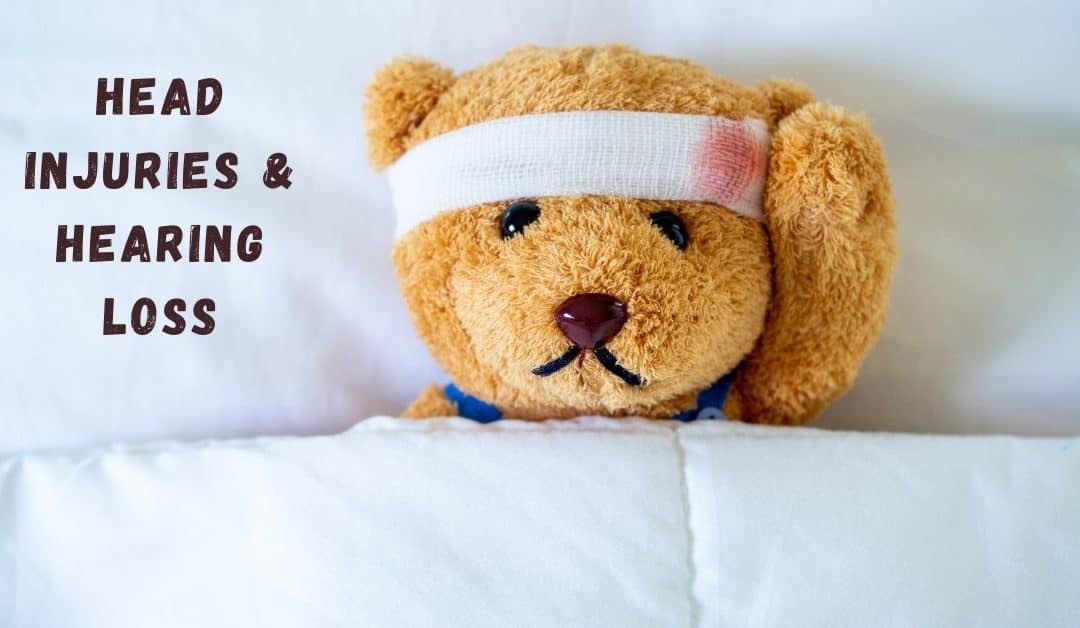One of the most common misconceptions about hearing loss is that it is a result of aging and only impacts older adults. Hearing loss actually has multiple causes and is experienced by people of all ages. Nearly 1 in 8 people have some degree of impaired hearing, making it one of the most common health conditions. In addition to aging, exposure to loud noise, and existing medical conditions; another cause of hearing loss is head injuries.
Understanding Head Injuries
Head injuries can range from mild to severe and are caused by extreme force to the head which disrupts brain function. Mild forms are commonly referred to as concussions and more severe trauma can lead to traumatic brain injury. According to the Centers for Disease Control and Prevention (CDC), there are up to 3 million head injuries every year and about 1 million are traumatic brain injuries. The CDC identified leading causes of head injuries from 2014 data which shows:
- Falls: 48%
- Car Accidents: 20%
- Struck by Object: 17%
Head injuries are a significant cause of disability and death in the U.S. which also produce a wide range of effects including: vertigo, chronic nausea and headaches, tinnitus (buzzing or ringing noise in the ears). Additionally, head injuries can cause hearing loss, a permanent medical condition that reduces one’s ability to hear and process sound.
Head Injuries & Hearing Loss
Head trauma, depending on the severity, can result in the bruising of the brain, swelling, hemorrhaging etc. which can damage any part of the auditory system: from the outer/middle/inner ear to the auditory cortex in the brain. This includes:
- Rupturing the eardrum
- Injury to the small bones in the middle ear
- Damaging the thousands of hair cells in the inner ear
- Disrupting blood flow in the ear
- Harming the tissues, membrane, auditory pathways
These effects profoundly impact the ability to then absorb and process sound. The sense of hearing requires the full function of these components to collect and translate soundwaves into electrical signals that travel through auditory pathways and reach the brain. The brain is then able to process and make meaning of the sound which is how we understand what we hear. When integral parts are damaged, this process is disrupted and results in hearing loss.
Treating Hearing Loss
If you have experienced a head injury, it is incredibly important to have your hearing evaluated as soon as possible. The first step is simple and only requires you to schedule an appointment for a hearing test. Conducted by a hearing healthcare specialist, hearing tests measure your hearing capacity in both ears. This identifies any impairment and the degree of hearing loss you may be experiencing. Hearing tests also establish your hearing needs and allows an audiologist (hearing specialist) to discuss ways to improve your hearing.
Fortunately, there are several useful ways that hearing loss is treated. The most common treatment is hearing aids which are small, electronic devices that are designed to absorb, amplify, and process sound. This significantly increases one’s hearing ability, supporting you to navigate daily life with greater ease.
Protecting Hearing Health
In addition to addressing hearing loss, it is important to be proactive about your hearing health! By practicing measures to increase your safety, you can reduce your risk of head injuries and protect your hearing. A few tips include:
- Wear Protective Gear: when participating in contact sports, riding a bike, driving etc., it is critical to wear protective gear (helmets, seatbelts). This can reduce the impact of trauma to the head. Additionally, protective gear for the ears in daily life is also important. When navigating a noisier environment, you can wear earmuffs or earplugs which reduce the amount of sound you absorb.
- Wear Hearing Aids: falls among older adults are a major cause of head injuries. Wearing your hearing aids and making sure they are well adjusted to maximize your hearing is critical. This allows you to hear warning signs and environmental cues that can alert you to potential danger.
- Take Listening Breaks: your ears need time to rest and recover from constantly absorbing sound. Turning any electronic devices off and taking listening breaks is a useful measure to incorporate into your routine!

